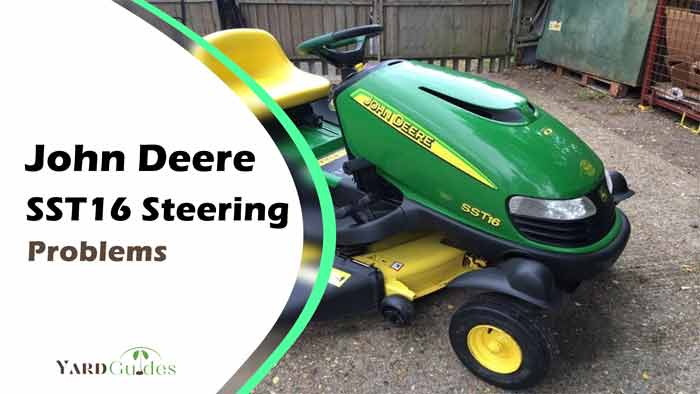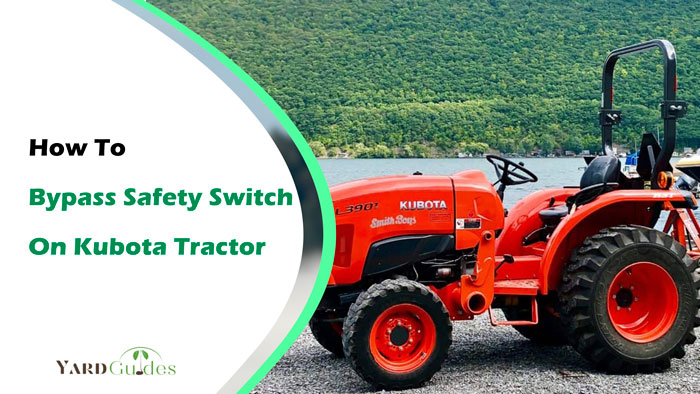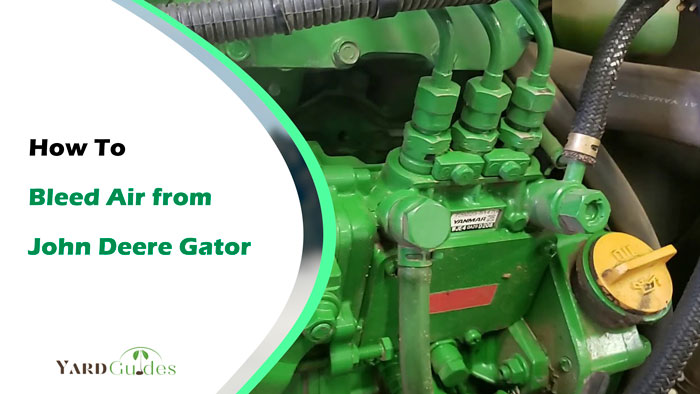John Deere SST16 is a popular lawn tractor that provides excellent cutting performance and maneuverability. It’s equipped with a unique steering system that allows for quick, precise turns. However, the steering may become faulty and difficult to operate as a result of some issues.
So, what are the most typical John Deere SST16 steering problems that occur? The issues include the followings.
- Damaged steering gear
- Loose steering components
- Worn steering wheel
- Faulty steering pump
- Low fluid level
Let’s explore the possible reasons for your steering issues and discuss their solutions that may help you get your John Deere SST16 back on track.
A Quick Solutions For John Deere SST16 Steering Problems
Steering problems can be frustrating and potentially dangerous. So it’s important to address them as soon as possible. The table below illustrates the quick solutions to John Deere SST16 problems.
| Problems | Solutions |
| Damaged Steering Gear | Upgrade to a New Steering Gear |
| Loose Steering Components | Tightening up the loose parts to improve steering response Replace any worn or damaged dampers |
| Worn Steering Wheel | Replace the worn steering wheel with a new one Replace any of the damaged steering linkage components Adjust the steering wheel alignment |
| Faulty Steering Pump | Replace with a high-performance steering pump |
| Low Fluid Level | Add more fluid to bring it up to the recommended level. |
Problems, Causes And Solutions For John Deere SST16
Let’s discuss the common issues mentioned above that make the mower difficult to control and their possible causes and solutions in detail.
1. Damaged Steering Gear
The steering gear is responsible for turning the wheels of your lawn tractor. This problem includes difficulty steering or making strange noises when turning.
That means the steering gear may be damaged. This problem is often caused by wear and tear of steering gear due to prolonged use. Additionally, if the SST16 is involved in an accident or collision, the steering gear may become damaged due to the force of the impact.
Solution
Upgrade to a New Steering Gear. This can involve replacing specific components, such as seals or gears, that are damaged. In some cases, a skilled mechanic may be able to repair the steering gear without having to replace it entirely.
2. Loose Steering Components
The steering components include the tie rods, steering shaft, and column. These components can become loose due to prolonged use.
And the SST16 has two steering dampers that help stabilize this system. If one or both of the dampers are damaged or worn, it can cause the steering to feel loose or unstable.
Solution
- Tightening up the loose parts to improve steering response
- Check the dampers for any damage or wear and replace them if necessary.
3. Worn Steering Wheel
The steering wheel helps to navigate the tractor. Problems with the steering wheel can cause a variety of other issues, including difficulty steering, jerky steering, and even steering failure.
However, it can become worn out due to prolonged use, leading to poor steering response. Another issue is the malfunction or grinding sound of the steering column. This can put extra strain on the steering wheel and cause it to wear down more quickly.
Solution
- Replace the worn steering wheel with a new one
- Replace any of the damaged steering linkage components
- Adjust the steering wheel alignment to ensure that it is properly aligned
4. Faulty Steering Pump
The steering pump supplies hydraulic power to its system. If the pump is faulty, it can cause a low steering response or even complete loss of steering.
You can also notice symptoms like difficulty turning the steering wheel, especially at low speeds. Likewise, you may also hear a whining or groaning noise when turning the wheel.
Solution
- Replace with a high-performance steering pump that provides better hydraulic power and improves steering response
- Make sure the tires are inflated to the proper pressure
5. Low Fluid Level
The hydraulic fluid level in the steering system can become low over time due to leaks or evaporation, leading to poor steering response. If you consistently find that the fluid level is low despite topping it up, it might be due to leakage in hoses or connections.
Without power steering fluid, the steering wheel would be very difficult to turn, especially at low speeds or when the vehicle is not in motion. In some cases, the steering may feel jerky or unresponsive, or the wheel may vibrate or shake while driving.
Solution
- Check the hydraulic fluid level in the steering system. If it is low, add more fluid to bring it up to the recommended level
- Check the hoses, connections, and pump for signs of damage or wear and replace the damaged components
Final Words
Steering problems can be frustrating, but they are common in John Deere SST16 lawn tractors. It is important to address any issues with the steering system as soon as possible, as they can affect the safety and handling of the vehicle.
You can quickly diagnose and fix the issue by understanding the causes and solutions outlined in this post. Thus, ensure your lawn tractor’s excellent performance and maneuverability for years to come. Remember to always follow the manufacturer’s instructions when maintaining your lawn tractor.



